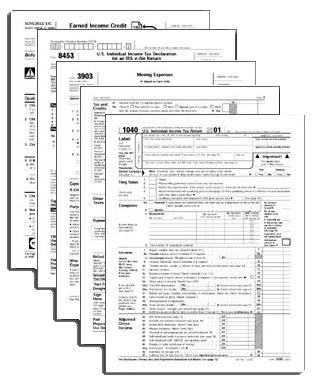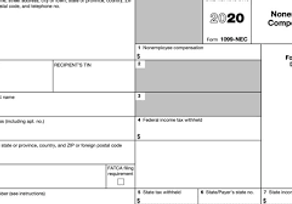
Alright, future South Floridians! Ready to ditch the snow boots and trade 'em in for some flip-flops? Buying a home can feel like navigating a swamp (especially in this market!), but don't worry, American Paradise Properties Inc. is here to guide you through the sunshine and palm trees. Think of us as your personal real estate sherpas, but instead of Everest, we're conquering…well, the housing market.
The Smooth Path to Your New Home
-
Initial Consultation & Agent Partnership: Let's get to know your goals. Then, simply hire one of our dedicated real estate agents who will be your expert guide and advocate throughout the entire process.
-
Financial Readiness & Pre-Approval: Before house hunting, ensure your finances are in order. This includes securing your job, saving for a down payment, and getting pre-approved for a mortgage with a trusted lender. Practice smart spending habits to keep your credit healthy.
-
Learn the Lingo & Define Your Wants: Familiarize yourself with common real estate terms. At the same time, create a clear wishlist of your must-haves and nice-to-haves for your new home.
-
Explore & Refine Search: Conduct "drive-by" tours of different neighborhoods and homes we send you to get a feel for the area. Based on this, work with your agent to select specific search areas and consider any unique factors like condo living in South Florida.
-
Home Shopping & Comps Review: The exciting part! Tour houses and condos that fit your criteria. Your agent will also provide comparable home sales (comps) to help you understand fair market value.
-
Offer & Acceptance: Once you've found "the one," your agent will help you craft a competitive offer. After negotiation, a contract acceptance means you're officially under contract!
-
Inspections & Negotiations: Schedule thorough home, termite, and pest inspections. Based on the findings, your agent will help you negotiate with the seller for any necessary repairs or credits.
-
Appraisal & Insurance: The lender will order an appraisal to ensure the home's value. You'll also need to obtain homeowners or condo insurance to protect your investment.
-
Final Checks & Closing: Arrange for utilities to be transferred, conduct a final walkthrough inspection to ensure everything is in order, and then it's settlement day! Sign the papers, get the keys, and celebrate becoming a homeowner!


Documents needed for a home loan
So, you've decided to buy a house. Congratulations! Now, get ready to embark on a thrilling scavenger hunt for your financial life story. But before you do, I want you to read this article from Forbes magazine which talks about The Perfect Loan File. This should be required reading for anyone buying a home. More specifically, it goes into why the lenders ask for so many #&*@^%! documents just to get a home loan.
Your lender, "bless their cautious hearts", will need more documentation than the Smithsonian to verify you're not a financial black hole disguised in a human suit. Don't worry, though, this isn't some elaborate hazing ritual. They just want to be sure you won't vanish into thin air, house and all, after they give you the money.
Here's what you can expect in your document dossier:
-
1. Pay Stubs: Prove you're a money-making machine! 30 days of pay stubs are your golden tickets. Feeling paperless? Ask your HR buddy for digital versions.
-
2. Job Proof: Did you really score that unicorn job? The lender might ask for a confirmation letter from your boss – just to be sure you're not a cat in disguise.
-
3. Employment History: Think of it as your work-iversary scrapbook. Gather contact info for the past two jobs, so the lender can stalk... er, verify your employment history.
-
4. Tax Time Machine: Dust off your last two tax returns – they're like financial time capsules. Haven't filed for the latest year? Dont have them? You will have to get them done. So stop here until thats done. If you already had them done but don't have a copy, ask the IRS for a transcript. You can even drive to the local office and they will print them for you. The lender might politely (or not so politely) ask you to get crackin'.
-
5. Bank Statements: Show off your budgeting skills (or at least convince the lender you can handle a mortgage) with 3 months of bank statements. Remember, honesty is the best policy (even if it means explaining that "mystery pizza purchase").
-
6. Self-Employed Superheroes: Got your own business? The lender wants to see tax returns (signed, with a superhero flourish) and profit/loss statements – basically, proof you're not just playing pretend CEO.
-
7. Debt Detectives: Time to face your financial frenemies – car loans, student debt, credit card dragons. Gather statements with balances and contact info – knowledge is power!
-
8. Home Hoppin': List your addresses for the past two years, along with landlord contact info (if applicable). Bonus points for a map with arrows showing your epic moving journey.
-
9. Extra Income Express: Do you have secret superpowers that generate income? Social Security, pensions, side hustles – spill the beans (on paper, of course). Child support/alimony? Discuss with your loan officer – transparency is key!
-
10. Investment Island: Show off your wealth (and potential down payment) with statements for stocks, bonds, savings accounts – basically, your financial treasure chest.
-
11. Earnest Money Enigma: So you made an offer and put down earnest money? Prove it wasn't leprechaun gold! Show the source of the funds (bank statement, gift letter from Granny). Remember, honesty is still the best policy, even when dealing with magical creatures.
-
12. Dust off that old uniform: Veterans - Get your DD-214, then Certificate of Eligibility (VA Form 26-1880)
There will be other documents they ask of you, but these are the most important. If you are able to secure these, you are half way there!!!



Pro Tip: Keep copies of EVERYTHING in a digital vault (cloud storage, thumb drive, your trusty filing cabinet – you choose!). Lenders love documentation, and having it handy makes things smoother than a freshly paved road. ️Plus, you really dont want to do all the work twice.
Remember, we're your mortgage cheerleaders, ready to help you conquer this step with ease. So grab your documents, put on your victory dance shoes, and get ready to celebrate in your new home – it's closer than you think!
BONUS TIP - Wanna see if you qualify for a first time homebuyer program? Check here : https://apps.floridahousing.org/StandAlone/FTHBWizard
